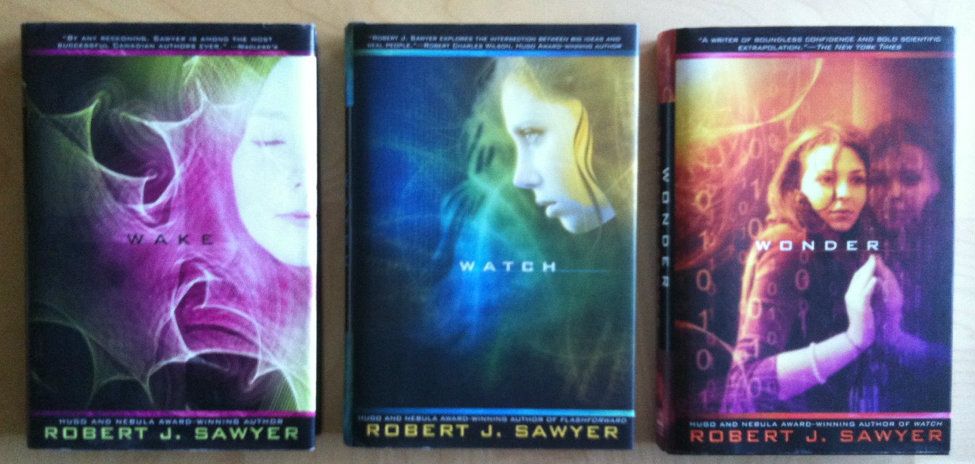Or why you should read the WWW trilogy by Robert J Sawyer
There is a tendency in Sci-fi to do dystopian futures with gritty male characters who commit gritty murders. As the record shows I love a good dystopian male murderfest on occasion, but I also enjoy utopian thinky books too. Robert J Sawyer is by my estimation the best contemporary writer of optimistic and thoroughly well researched Sci-fi. He is also a Canadian Sci-fi author who takes great pride in using Canadian characters and settings which is pretty neat (said as a proud Canadian).
The WWW trilogy is a near-future, hard science fiction story about a blind girl and a super-intelligent machine intelligence. The protagonist of the novels is Caitlin, a blind American expat teenager, living in Waterloo Ontario with her academic parents. Caitlin was born completely blind, but due to an experimental optic nerve implant, she gains sight for the first time early in the trilogy. In the process of debugging her new sight-aid to perfect her vision, Caitlin "sees" evidence of an emerging intelligence in the Internet. This emerging intelligence, with the aid of Caitlin, gains sentience, names itself Webmind, and begins to interact with the world... and the story goes on from there.
Of course the books also has some pretty important subplots about Chinese dissident bloggers and the plight of hobo the bonobo painter.
These novels are tremendously well researched and highlight some pretty nifty theories about the development of consciousness, the relationship between vision and thought, and the way the Internet works. On top of these well researched bones are some thoughts about neurodiveristy, growing up, living with a disability, and the existence of a super intelligent machine sentience. It's the kind of science fiction where you actually learn some things and are introduced to some pretty high concept ideas.
The novels also, through their use of Americans living in Canada, highlight some of the little quarks of Canadiana that make Canada a distinct place.
The engines of the book are, however, the characters. Sawyer is a master of creating these vibrant, amazing characters thr you really care about which he uses to ground and drive his higher concept story elements. As much as I'm intrigued about how webmind will change the future of mankind, I find myself engrossed in the day-to-day struggles of the characters: from Caitlin's social life to the plight of hobo the bonobo to the challenges associated with being autistic. It's thought provoking Sci-fi with a big giant human heart. Which, if you think about it, is a great concept since the amazing technology and innovations of Sci-fi really only matter in the context of actual people.
If you enjoy hard Science Fiction and like seeing lovable, complex, and diverse characters I'd sugget you read this book (particularly if you love Canada). If you care more about laser pistols and deathbots... read this anyways because variety is the spice of Arrakis.

No comments:
Post a Comment